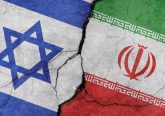Debate in Israel about the government’s strategy in the Gaza war is heating up. While a majority of Israelis still support the war in Gaza, a growing minority are questioning whether continuing the war against Hamas will bring greater security to Israel or stability to the region, arguing that the government’s military campaign will perpetuate a conflict damaging all parties – not least Israelis themselves. Benjamin Netanyahu’s failure to bring home the Israeli hostages has reinforced tensions and doubt among the public. But continuing the war suits the incumbent government, enabling them to remain in power. Paradoxically, it also suits Hamas. Only when a majority of Israelis themselves conclude that the current strategy puts at risk rather than guarantees their national survival will the government’s strategy be forced to change.
The irony is that while Israel’s war in Gaza may have had some military success, it has been politically disastrous: strengthening Hamas, effectively destroying any Palestinian political alternative, and weakening international support for Israel. In fact, the decisions of Netanyahu’s governments over the years have consistently, if inadvertently, strengthened Hamas, not weakened it. Hamas, it seems, has out-thought, even if it hasn’t out-fought, the Israeli state.
On the military side, after three months of war, U.S. intelligence agencies estimate that Israeli forces have eliminated only 20-30% of Hamas’ fighters, well short of Israel’s aim to destroy the group. On the other hand, they have killed up to 25,000 Palestinians, including many women and children, as ‘collateral damage’ (according to the UN-endorsed Gazan Health Ministry’s figures), a number described as ‘unacceptable’ by UN secretary general António Guterres. The physical devastation of public and social infrastructure and housing has made large parts of Gaza effectively uninhabitable – tactics uncannily similar to those used by Bashar al-Assad against the Syrian opposition in 2015-16.
The effect has been to destroy the lives and livelihoods of exactly those Palestinians who might form a less extreme and more productive and peaceful government: the nascent Palestinian middle class of businessmen, professionals (including lawyers, medics, administrators, and journalists), students, traders, and workers of every stripe who seek to earn a living in peace and freedom. By leaving Palestinian civilians without a home, or a future, Israel is strengthening Hamas. What can a bright young Palestinian hope to do now for a living, other than join the resistance against an Israeli state that makes any other way of life impossible?
For Hamas, as the group’s recently assassinated leader Saleh al-Arouri claimed in 2007, the conflict with Israel represents a “1000 year war”, bolstered by Israel’s own policy of encouraging Jewish settlements in the Occupied Territories. As Israel has shrunk the physical and political space available to Palestinians, Hamas has been able to build a formidable political organisation and integrated it into Palestinian society. Not all Palestinians necessarily like or support Hamas. But with a neutered Palestinian Authority, they face little political alternative. On the contrary, Netanyahu’s governments have starved the Palestinian Authority (who acknowledge Israel’s right to exist) of funds, while, since 2018, allowing Qatar to finance Hamas (who do not) to “maintain its fragile cease-fire” in Gaza, a contradiction pointed out by the EU’s top diplomat Josep Borrell last week.
The Israeli narrative that Palestinians should view Hamas as the author of their own devastation is a profound misunderstanding of Palestinian politics. By rhetorically supporting the PA but giving them no political space or economic reinforcement, Israel has helped destroy their credibility, and legitimise Hamas as the only ‘true defender’ of Palestinian interests. As in all societies, Palestinian politics is characterised by a range of ideologies and interests. But as long as Israel allows no space for diverse political interests, Palestinians will prioritise achieving freedom. This is becoming increasingly evident in wartime opinion polls, showing a rise in Hamas support and an overwhelming rejection of Western-backed President Mahmoud Abbas, with almost 90% of Palestinians saying he must resign.
Yet, Israel’s current leaders continue to reject the fact that their strategy is failing. Netanyahu’s government is doubling down on coercion as the primary means to assure national security, reinforcing Hamas’s narrative and appeal. As long as one Hamas fighter remains, they will claim victory. The IDF seems to have learnt little from the failed Lebanese campaign of 2006, sticking to its military strategy of 1948, 1967, and 1973 – that the harder you hit your opponents, the more likely it is they will leave you in peace. Today, however, Israel is not fighting states, it is fighting people – people with nowhere else to go. This requires a completely different strategy, based around co-option rather than compulsion.
Yoav Gallant’s recent statement that after the war, “Palestinian bodies will govern Gaza” and Israeli settlers will not return, is conditional on Hamas being excluded and Israel having a free hand on all security matters, as Netanyahu has repeatedly emphasised. This effectively entails re-occupation, which will once more strengthen Hamas’s appeal, even if entirely from exile.
The political survival of Netanyahu and his allies depends on the war continuing. Rather than recognising that the 7 October attacks represented a profound policy failure, the government is maintaining its rhetoric that only the most violent suppression of Palestinian political forces – and civilians –will bring Israel security. Despite growing pressure for a ceasefire from the US, the international community, and the relatives of Israeli hostages, Netanyahu continues to insist that the war will continue for months to come. According to public opinion polls, most Israelis oppose a two-state solution and maintain support for the war. Yet, demonstrations are signalling growing anger over the fate of the hostages taken by Hamas, and Netanyahu’s overall conduct before and during the war. Although cease-fire calls in Israel remain rare, the anti-war movement is growing. Ultimately, it will be up to Israeli voters to elect politicians that enable, rather than stifle, a hope for peace and mediation.
Moreover, the government’s current strategy ignores the threats that a destabilised region will pose to Israel’s national security. Arab governments are already under popular pressure to be more supportive of Palestinians and less accommodating to Israel, while the Houthi attacks in the Red Sea show the international costs of Israel’s rejection of Palestine’s future. In this respect, Netanyahu’s strategy has fundamentally failed to reinforce regional alliances. Arab governments cannot afford to return to their pre-October 7 policies and will continue to firmly resist the expulsion of Palestinians across their borders.
What could a more effective Israeli strategy entail? It is crucial that Palestinians are offered a viable political alternative to Hamas, first by acknowledging the Palestinians’ right to exist alongside Israel, second by restraining settlers on the West Bank, and third by supporting a genuinely democratic process that allows Palestinians to elect leaders with whom they can negotiate. Before any of these options are available, however, Israeli voters must choose a government that is committed to peace, not war. Without this, Israel’s own future – domestically, regionally, and internationally – will be increasingly at stake.
Note: This article reflects the views of the author and not the position of the DPIR or the University of Oxford.







